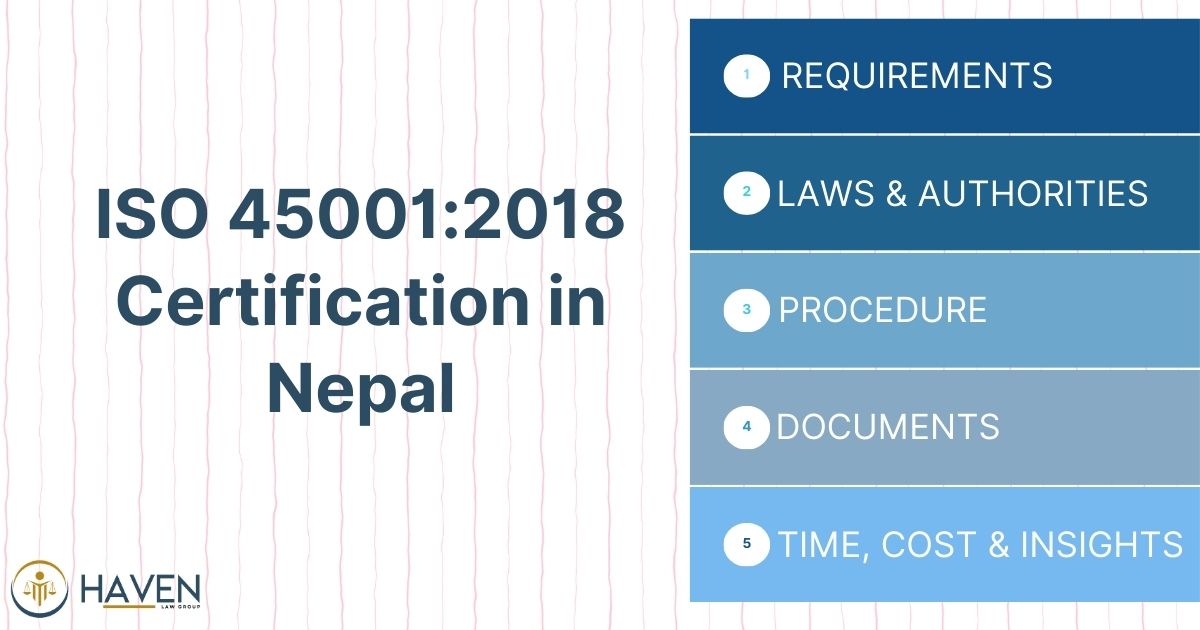How is property divided after divorce in Nepal?
In Nepal, partition of property after divorce is governed by the Muluki Ain (Civil Code) 2074. The law aims to ensure a fair distribution of marital assets between the divorcing parties. Generally, the court considers various factors when dividing property, including the duration of the marriage, each spouse’s contribution to the acquisition of assets, and the financial needs of both parties.
The process typically involves identifying all marital properties, valuing them, and then dividing them equitably. This may not always mean an equal 50-50 split, but rather a division that the court deems fair based on the circumstances. The court may also consider any prenuptial agreements or mutual settlements reached by the parties. It’s important to note that the property division process can be complex, especially in cases involving significant assets or disputes over ownership.
What are the legal rules for property partition in divorce?
The legal rules for property partition in divorce in Nepal are primarily outlined in the Muluki Ain (Civil Code) 2074. According to Section 94 of the Code, both spouses have equal rights to marital property. The law recognizes two types of property: separate property (acquired before marriage or through inheritance) and marital property (acquired during the marriage).
Marital property is subject to division, while separate property generally remains with the original owner. The court considers factors such as the length of the marriage, each spouse’s financial situation, and their contributions to the household when making decisions about property division. Additionally, Section 95 of the Code states that if one spouse has made significant contributions to the other’s separate property during the marriage, they may be entitled to a share of that property as well. The court has the discretion to make adjustments to ensure a fair outcome for both parties.
Can property claims be contested during divorce?
Yes, property claims can be contested during divorce proceedings in Nepal. Either spouse has the right to challenge the other’s claims regarding property ownership, valuation, or division. Contestation often occurs when there are disagreements about the nature of certain assets (whether they are separate or marital property), the value of specific properties, or the fairness of the proposed division.
To contest a property claim, the disputing party must provide evidence to support their position. This may include documentation of ownership, financial records, or expert valuations. The court will then consider the evidence presented by both parties before making a decision. It’s worth noting that contesting property claims can significantly prolong the divorce process and may increase legal costs. Therefore, it’s often advisable for parties to attempt to reach an agreement through negotiation or mediation before resorting to litigation.
Are marital properties equally divided in Nepal?
In Nepal, the principle of equal division of marital property is recognized by law, but this doesn’t necessarily mean that all marital properties are divided exactly 50-50 in every case. The Muluki Ain (Civil Code) 2074 provides for equitable distribution rather than strictly equal division. While the starting point is often an equal split, the court has the discretion to adjust the division based on various factors. These factors may include the duration of the marriage, each spouse’s financial situation, their contributions to the acquisition of property, and their future needs.
For instance, if one spouse has been the primary caregiver for children and has limited earning capacity, they might receive a larger share of the property to ensure their financial stability. Similarly, if one spouse contributed significantly more to the acquisition of certain assets, this may be taken into account. The goal is to achieve a fair and just division that considers the unique circumstances of each case.
Can one party claim sole ownership of property?
In Nepal, it is possible for one party to claim sole ownership of certain properties during a divorce, but such claims must be substantiated with evidence. Generally, properties acquired before marriage or received as gifts or inheritance during the marriage are considered separate property and may be claimed as sole ownership by the respective spouse.
However, if the other spouse has contributed to the maintenance or enhancement of such property during the marriage, they may be entitled to a share. For properties acquired during the marriage, claiming sole ownership can be more challenging as these are typically considered marital property subject to division. To claim sole ownership, a party would need to provide clear evidence that the property was acquired solely through their own means without any contribution from the other spouse.
This might include documentation of purchase using separate funds, inheritance documents, or other relevant proof. The court will carefully evaluate such claims and the supporting evidence before making a determination.
Are properties acquired before marriage divided?
Properties acquired before marriage in Nepal are generally considered separate property and are not typically subject to division during divorce. According to the Muluki Ain (Civil Code) 2074, assets owned by an individual prior to entering into the marriage remain their sole property. This includes real estate, personal belongings, investments, and any other assets acquired before the wedding date.
However, there are exceptions to this rule. If the non-owning spouse has made significant contributions to the maintenance, improvement, or increase in value of the pre-marital property during the course of the marriage, they may be entitled to a share of the appreciation in value. Additionally, if pre-marital assets have been commingled with marital assets to the extent that they can no longer be distinguished, they may lose their separate property status and become subject to division. It’s crucial for individuals to maintain clear records of pre-marital assets to protect their interests in case of divorce.
Is a court order required for property partition?
Yes, a court order is typically required for property partition in divorce cases in Nepal. The process of property division is overseen by the court to ensure fairness and compliance with legal requirements. Even if the divorcing parties reach an agreement on property division outside of court, it’s advisable to have this agreement formalized through a court order. This provides legal protection and enforceability to the agreement. The process usually involves the following steps:
- Filing a petition for property partition along with the divorce petition
- Providing a list of all marital assets and their estimated values
- Presenting evidence of ownership and contributions to the property
- Attending court hearings where both parties can present their cases
- Receiving a court decision on the property division
- Obtaining a final court order detailing the agreed-upon or court-decided property partition
The court order serves as a legal document that outlines how the property should be divided and can be enforced if one party fails to comply with the terms of the division.
Can NRNs claim property after divorce?
Non-Resident Nepalis (NRNs) can claim property after divorce in Nepal, but the process may involve additional complexities. The Muluki Ain (Civil Code) 2074 does not discriminate based on residency status when it comes to property rights in divorce cases. However, NRNs may face practical challenges in pursuing their claims due to their absence from the country. They may need to:
- Appoint a legal representative in Nepal to act on their behalf
- Provide notarized and authenticated documents from their country of residence
- Comply with any specific requirements set by Nepali courts for NRNs
- Navigate potential issues related to foreign currency transactions and property ownership laws
NRNs should be aware of any bilateral agreements between Nepal and their country of residence that may affect property claims. It’s advisable for NRNs to seek legal counsel familiar with both Nepali law and international property issues to ensure their rights are protected during the divorce and property partition process.
Are lawyers needed for property partition cases?
While it’s not legally mandatory to have a lawyer for property partition cases in Nepal, it is highly recommended due to the complexity of these matters. Lawyers can provide valuable assistance in several ways:
- Interpreting complex legal provisions related to property division
- Gathering and presenting necessary documentation and evidence
- Negotiating on behalf of their client to reach a fair settlement
- Representing the client’s interests in court proceedings
- Ensuring all legal procedures and deadlines are met
- Advising on the long-term implications of property division decisions
- Handling any appeals or enforcement issues that may arise
Property partition cases often involve significant financial stakes and can have long-lasting impacts on both parties. A skilled lawyer can help navigate the legal system, protect their client’s rights, and work towards achieving a favorable outcome. In cases involving substantial assets or complex property arrangements, professional legal representation becomes even more crucial to ensure a fair and legally sound resolution.
How long does the property partition process take?
The duration of the property partition process in Nepal can vary significantly depending on the complexity of the case and the level of cooperation between the parties involved. On average, a straightforward property partition case might take anywhere from 6 months to 2 years to resolve. However, more complex cases or those involving significant disputes can take longer. Factors that can influence the timeline include:
- The number and complexity of assets involved
- Disputes over property valuation or ownership
- The court’s caseload and scheduling
- The willingness of both parties to negotiate and reach agreements
- The need for expert valuations or testimonies
- Any appeals filed against initial court decisions
It’s important to note that the property partition process often runs concurrently with the divorce proceedings. Parties can potentially expedite the process by reaching mutual agreements on property division outside of court, which can then be formalized through a court order. However, even in such cases, the process still requires court approval and can take several months to complete.
Can children claim property after parents’ divorce?
In Nepal, children’s rights to property after their parents’ divorce are protected under the law. According to the Muluki Ain (Civil Code) 2074, children have inheritance rights to their parents’ property regardless of the marital status of their parents. However, the immediate division of property to children during a divorce proceeding is not typical. Instead, the court focuses on ensuring the children’s welfare through other means such as child support and custody arrangements. Children’s property rights generally come into play in the following scenarios:
- When they reach the age of majority (18 years in Nepal)
- In case of the death of one or both parents
- If specifically provided for in the divorce settlement or court order
It’s important to note that while children have the right to inherit their parents’ property, this right doesn’t typically affect the division of property between the divorcing spouses. The court’s primary concern in divorce cases involving children is to ensure that adequate provisions are made for the children’s care and support, which may include setting aside certain assets or income for their benefit.
Are debts considered in property partition?
Yes, debts are considered an integral part of the property partition process during divorce in Nepal. The Muluki Ain (Civil Code) 2074 recognizes that marital debts, like marital assets, should be fairly divided between the spouses. The court takes into account both assets and liabilities when determining the overall financial picture of the marriage. This includes:
- Joint debts incurred during the marriage
- Individual debts that benefited the marital estate
- Mortgages on marital properties
- Personal loans and credit card debts
- Business debts if either spouse owns a business
The court aims to distribute debts equitably, which doesn’t necessarily mean equally. Factors considered in debt division include each spouse’s ability to pay, the purpose of the debt, and who benefited from the debt. It’s important to note that creditors are not bound by divorce agreements, meaning that if one spouse fails to pay a joint debt assigned to them, the creditor can still pursue the other spouse for payment. Therefore, it’s crucial to address debt division carefully during the property partition process to protect both parties’ financial futures.
FAQs
1. Is division equal?
Not necessarily. While the law recognizes equal rights to marital property, the actual division is based on equitable distribution, considering factors like marriage duration, contributions, and financial needs of each party.
2. Can claims be rejected?
Yes, property claims can be rejected if they lack sufficient evidence or if the court determines them to be unfair or contrary to legal provisions. The court has the discretion to accept or reject claims based on the merits of each case.
3. Are court orders mandatory?
Yes, court orders are mandatory for legally binding property partition in divorce cases. Even if parties reach an agreement outside court, it should be formalized through a court order for legal enforceability.
4. Is notarization required?
While notarization isn’t always mandatory, it’s often recommended for important documents related to property partition. Notarized documents carry more legal weight and can be crucial in case of disputes.
5. Are debts included?
Yes, debts are included in the property partition process. The court considers both assets and liabilities when determining the overall financial settlement in a divorce case.
What laws govern property division after divorce in Nepal?
The Muluki Civil Code 2017 governs property division after divorce in Nepal. It outlines rules for partitioning shared marital assets and separate property between spouses upon marriage dissolution.
Is Nepal’s property law after divorce different for men and women?
Nepal’s property laws after divorce apply equally to men and women. The Civil Code aims to ensure fair distribution of marital assets regardless of gender.
Can self-earned property by either spouse be excluded from partition?
Self-earned property acquired before marriage or through inheritance can potentially be excluded from partition. However, the court considers various factors when determining exclusions on a case-by-case basis.
Are gifts and dowry considered part of marital property in Nepal?
Gifts and dowry are generally considered part of marital property in Nepal. The Civil Code includes such assets when calculating the total property to be divided upon divorce.
What are a wife’s rights to property after divorce in Nepal?
A wife has rights to an equitable share of marital property after divorce in Nepal. This includes jointly owned assets, as well as a portion of the husband’s separate property in some cases.
How to file for property partition during or after divorce in Nepal?
To file for property partition, submit a petition to the district court. Include details of all assets, income sources, and proposed division. Mediation is encouraged before litigation.
What documents are required for property partition after divorce?
Required documents typically include marriage certificate, property ownership papers, income statements, bank records, and any prenuptial agreements. Additional evidence may be requested by the court as needed.








